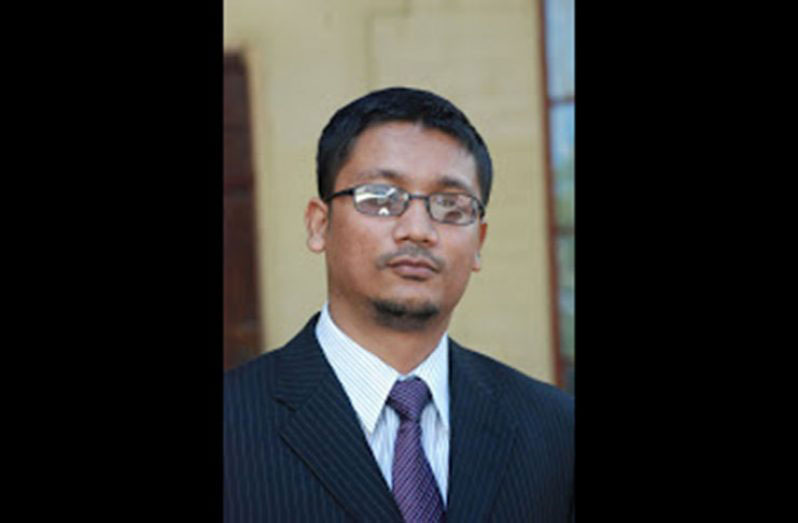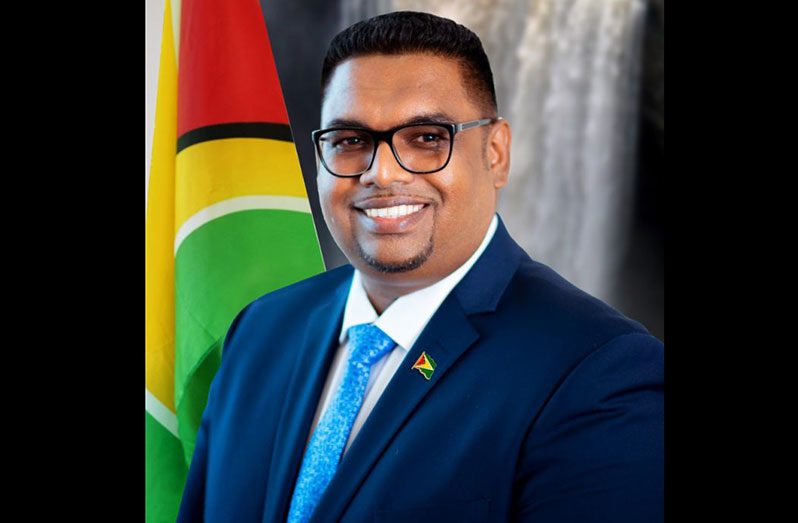— Attorney-General makes compelling arguments to strike out President as a respondent
COME September 16, High Court Judge Gino Persaud is expected to give his ruling on the interlocutory application filed by the Attorney-General and Minister of Legal Affairs, Anil Nandlall, S.C, to challenge the listing of President Irfaan Ali as a respondent in a case filed by the Public Service Commission (PSC).
On Monday, the Judge heard arguments from the Attorney-General and the PSC attorney’s Selwyn Pieters, who were at odds over the presidential immunity.
In his arguments, Nandlall said that according to Section 10 of the State Liability and Proceedings Act, except in exceptional instances, “proceedings for the enforcement of any claim by or against the State shall be brought by or against the Attorney-General and may be instituted … in all cases, in the High Court in accordance with the High Court Act”.

In his submissions, the Attorney-General also relied on Article 89 of the Constitution which explicitly states the President is the “Head of State, the supreme executive authority, and Commander-in-Chief of the armed forces”, therefore any action brought against the Head of State in that capacity should only name the Attorney-General.
Additionally, Article 182 of the Constitution notes that the President shall not be personally answerable to any court for the performance of the functions of his office or for any act done in the performance of those functions and no proceedings, whether criminal or civil, shall be instituted against him in his personal capacity in respect thereof either during his term of office or thereafter.
According to the Attorney-General, he had challenged the decisions of the then sitting President, David Granger in a number of cases which involved the revocation of rice farmers leases, the Red House lease and the appointment of the Chairman of the Guyana Elections Commission.
NO OCCASION
“But on no occasion did I name President Granger; I named the Attorney-General, who is the proper respondent,” Nandlall said in his arguments as he asked the court to remove the President from the substantive proceedings.
To prove his interpretation of the law, he cited among other cases, a Guyanese case– Baird v Public Service Commission (2001) 63 WIR 134—in which former Chief Justice, Ian Chang, held that at page 164- “The immunities which attach personally to the President under article 182 of the Constitution are for the limited purpose of ensuring effective performance of the functions of his high office, and not for the purpose of granting immunity to the State for any wrongdoing. The State would still be liable for the President’s wrongdoing, even though the President himself would be immune from the curial processes. It is the President who is immune from the curial process, not his acts.”

However, Pieters is contending that the President is a proper named party since he acted outside of the law when he suspended the PSC.
In his oral arguments, Pieters acknowledged that the naming of a President as a respondent is “unusual”. However, he submitted that the unprecedented nature of the case and the course of action by the President is unconstitutional, undemocratic and contradicts the independence of the PSC.
“While the Attorney-General is the legal representative of the Government of Guyana and is a necessary and appropriate party to these proceedings, the said role of the Attorney-General does not preclude the naming of his Excellency,” Pieters said.
The Attorney-General in reply to Pieters’ submission, said that the learned attorney did not cite case laws to support the interpretation of the laws that he used to support his case. According to Nandlall, Pieter’s contentions go against previous court ruling involving the Presidential immunity.

“My friend (Pieters) is inviting you to go where no other judge has travelled and to stand in complete solitude while all the other judges had interpreted this uniformly and without controversy to say what I’m asking you to find,” Nandlall told the judge.
Following the oral arguments, Justice Persaud fixed September 16, 2021, for his decision on Nandlall’s application.
In June, Acting Chief Justice, Roxane George S.C., struck out the legal challenge brought by five senior police officers against the PSC over the 2020 year-end police promotions. Following the CJ’s ruling, the Government of Guyana through the Attorney-General and Minister of Legal Affairs issued a statement rejecting the PSC’s promotion list as unlawful and illegal.
IGNORED
It noted that in the circumstances, this purported list of promotions of members of the Guyana Police Force (GPF) will be ignored since the PSC was suspended. “The said decision of the President can only be rescinded, revoked, set aside or reversed by the President himself, or by a court of competent jurisdiction. No person, let alone a constitutional commission, will be allowed to become judge, jury and executioner in our constitutional democracy. The Rule of Law simply does not permit it,” the Attorney-General had said in a statement, adding that: “The attempt of the Police Service Commission, therefore, to countermand, disobey and disregard the President’s decision, not only amounts to an effrontery to the highest Executive office in this land, but is simply absurd. If anyone had any doubts about the independence and rectitude of this grouping who constitute the Police Service Commission, those doubts should now be put to rest.”
The PSC’s application was filed in July, after President Ali, based on advice from Prime Minister, Brigadier (ret’d) Mark Phillips, and in accordance with Article 225 of the Constitution of Guyana, suspended the PSC Chairman and its members, pending the findings of a tribunal that was to be established.
The PSC, with the aid of its attorneys, Pieters, Dexter Todd and Dexter Smartt, filed a constitutional action which is praying that the court grants a declaration that the purported June 16 suspension of its Chairman, Paul Slowe and commissioners, Michael Somersall, Claire Alexis Jarvis, Vesta Adams, and Clinton Conway, from performing the functions of their respective offices in the Commission, were in violation of the Constitution of the Co-operative Republic of Guyana Articles 225(6) and 210(3), and therefore of no force or effect.
The applicant is also seeking another declaration from the court that the commission remains competent and responsible to fulfil its constitutional mandate including appointments to any offices in the Police Force of or above the rank of inspector in accordance with Article 212(1) of the Constitution.
Additionally, the applicant is seeking a further declaration from the court that the Prime Minister’s recommendations to the President for the removal of the PSC Chairman and its members from their respective offices at the commission were in violation of, and ultra vires, the Constitution, and in particular Article 225(2), being made on grounds other than inability to discharge the functions of office or misbehaviour.
Meanwhile, the Attorney-General in his application, is asking the court for a declaration that the joinder of President Ali to the proceedings is contrary to and in contravention of Article 182 (1) of the Constitution and Section 10 of the State Liability and Proceedings Act, therefore, listing the President is unlawful, unconstitutional, null, void and of no effect.




.png)









